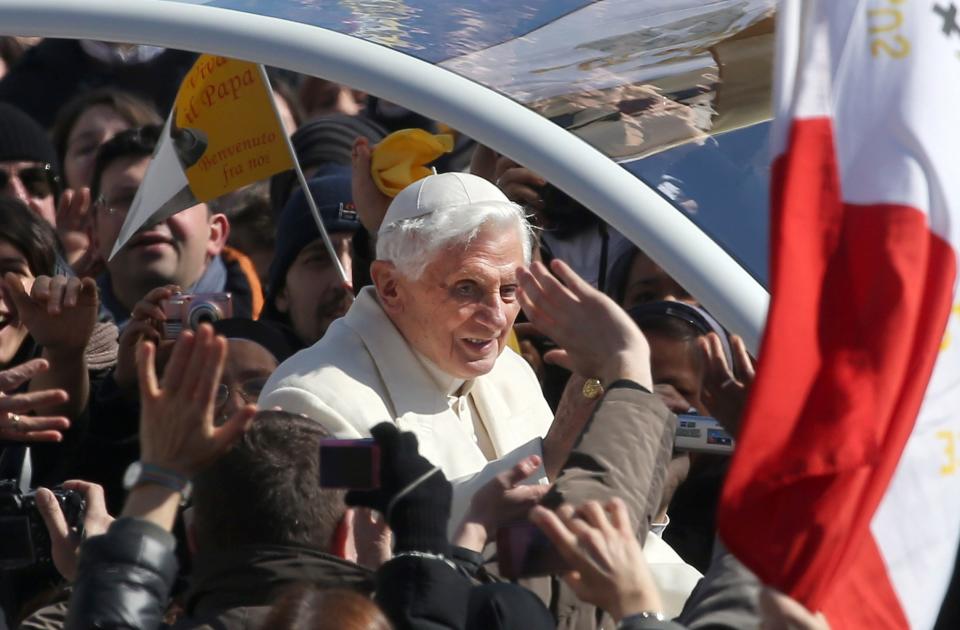What to know about traveling for Pope Benedict XVI's funeral
- Oops!Something went wrong.Please try again later.
- Oops!Something went wrong.Please try again later.
The death of Pope Emeritus Benedict XVI on Saturday at 95 did not come as a surprise. Pope Francis asked for prayers for Benedict's health during an audience Wednesday, and said Benedict was "very sick."
Benedict retired in 2013, citing age and poor health, making him the first pope to do so since the 1400s, as they typically serve until death.
Benedict officiated at the funeral of Pope John Paul II, the last pope to die, in 2005. An estimated crowd of 300,000 people went to St. Peter's Square in Vatican City, and millions of others watched on large television screens in public squares around Rome.
Here are a few things to know if you're planning to travel for the former pope's funeral.
What are the funeral plans for Pope Benedict XVI?
Pope Francis will celebrate the funeral Mass for Benedict Thursday in St. Peter’s Square, according to the Vatican, an unprecedented event for a current pope officiating over a funeral for a former pope.
Do I need a visa to visit Italy?
No. U.S. citizens are allowed to stay in Italy for as long as 90 days without a visa, though they must complete a declaration of presence, according to the U.S. State Department.
Visitors must also have valid travel documents when they enter the country, and passports have to remain valid for a minimum of three months past the period they are staying in the Schengen Area. They will also need "proof of sufficient funds and a return plane ticket," according to the department.

Does Italy have any COVID-19 entry rules for U.S. travelers?
Generally, no. Italy lifted its remaining coronavirus entry restrictions in June, but as of Wednesday, the country has implemented requirements for all inbound travelers from China, including testing before and after arrival, according to the Italian Ministry of Foreign Affairs and International Cooperation. The rules will remain in place until Jan. 31, though they do not apply to children under 6 and others such as crew members or diplomats, if they do not have symptoms.
Travelers who test positive while in Italy must self-isolate at their own expense for between five and 14 days "depending on the specifics of the case," according to the U.S. Embassy & Consulates in Italy.
This article originally appeared on USA TODAY: What to know about traveling for Pope Benedict XVI's funeral

